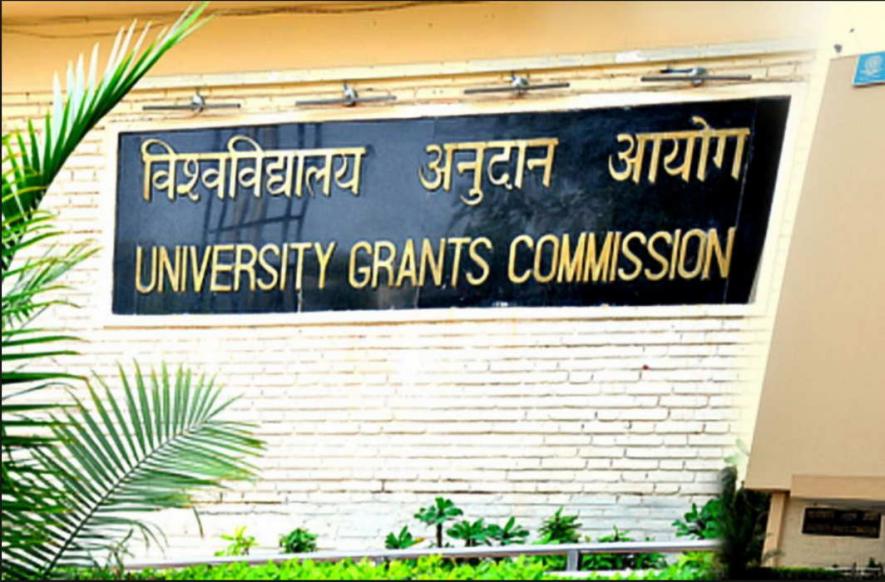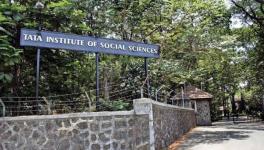Two Significant Victories Against the Destructive Moves by MHRD

Draft HECI (repeal of UGC) Bill, 2018 Amended by MHRD
The Ministry of Human Resource Development (MHRD) has amended certain problematic sections of the draft bill that proposed to replace the University Grants Commission (UGC) with the Higher Education Commission of India (HECI). As reported by Hindustan Times, MHRD has received over 6000 suggestions, and even though the deadline for submitting suggestions to MHRD is July 20, the draft bill has been selectively amended after receiving suggestions from teachers’ associations, State Governments, and academics.
Also Read: The Proposed Abolition of the UGC Will Increase Political Control
The stake of state governments in the Higher education sector has been reduced in the new draft bill, as it gives a fillip to centralisation of policy and decision-making with the Centre. Among the protesting states, Tamil Nadu and Puducherry Governments were the most vocal in their opposition to the Centre’s move to scrap the UGC and separate the regulatory and funding powers between the HECI and HRD Ministry, respectively. DUTA’s Feedback on Draft Bill for HECI (Repeal of UGC Act) Act 2018 reveals the intent behind scrapping UGC and setting up HECI.
“The overall inference of the provisions points to an authoritarian desire for centralisation and bureaucratic control over academic activity and the growth of academic disciplines. The structure, composition and functioning of the HECI is overtly and unacceptably bureaucratic and unmindful of the ground realities and challenges of teaching-learning and research.”
Provisions Amended:
The power of issuing grants had been taken away from the UGC and passed to the Ministry itself, which was seen as promoting more government interference in the functioning of Higher Education Institutions. This provision has been amended and grant-giving powers will reside with an independent body of experts.
The provision of having an ‘Advisory Council’ – chaired by the HRD Minister – to advise states has been altered to give existing bodies like the Central Advisory Board on Education (CABE) the responsibility of communicating with the states and advising them.
Another amendment is the removal of the provision of having secretaries in the search-cum-selection committee appoint members of the new commission – which was criticised as a move towards ‘bureaucratisation’. The committee will now comprise of reputable academics under the chairmanship of Cabinet secretary.
The draft also said HECI would have the power to give authorisation. But now the provision of the existing universities to come to HECI for authorisation has been dropped, only the new universities will need to come for authorisation. The section on penalties has also been redone, and different penalties have been proposed for various offences, as reported by HT.
Main provisions for privatisation, commercialisation and centralisation retained:
Some of the main provisions which haven’t been addressed in the amended draft, but are nonetheless very detrimental to the democratic and equitable functioning of Higher Education Institutions are as follows:
The composition of the commission is heavily tilted towards the bureaucracy and other endorsees of Government policy. Representation of academics, teachers from state universities, members of Constitutionally-approved bodies of Women, Dalits, Adivasis, Backward Castes, Minorities and Persons with disability, as well as Teachers’ Associations and Students’ Unions is highly inadequate.
The promotion of the controversial schemes of Graded Autonomy, Autonomous institutions, self-financing courses, and Universities as self-regulatory bodies, which have received widespread criticism from students’ organisations and teachers’ associations, hasn’t been amended in the least.
The over-reliance on learning outcomes, performance-based incentivisation for teachers, and standardisation of processes, functions and norms, which is detrimental to such a diverse and heterogeneous Higher Education system necessary to cater to the corresponding diversity and heterogeneity of the country, has been retained completely.
The MHRD had announced its decision to repeal the UGC Act, 1956 and replace it with the HECI, with grant-giving powers to be taken over by Ministry itself, on June 28. They had given time till July 20 for all suggestions to be sent to MHRD. Now the draft bill, after Cabinet approval, will be introduced in the monsoon session of Parliament currently going on, as per media reports.
University Teachers’ Appointments to be postponed till SC decides on Reservation roster issue
The government is going to formally ask Universities to not proceed with teacher recruitment till the Supreme Court decides on the matter regarding UGC’s March 5 notification which had changed the formula for calculating reservation in teaching positions, as reported by The Indian Express.
In the March 5 notification, UGC had directed all central and state universities to consider departments as 'units'. However, for recruitment for the reserved faculty positions, the university was considered to be a ‘unit’ until now, in compliance with the 2006 UGC guidelines. The new notification says, "In case of reservation for SC/ST, all the universities, deemed to be universities, colleges and grant-in-aid institutions and centres shall prepare the roster system keeping the department/subject as a unit for all levels of teachers as applicable."
This change drastically reduced the representation of SCs/ STs/ OBCs in teaching positions in all central and state universities, sparking widespread protests by Teachers’ Associations, SC/ST/OBC organisations and Students’ Organisations. DUTA and FEDCUTA had taken out protest marches and dharnas in front of the UGC, and even gheraoed the UGC by forming a human chain. Many teachers had gone on a relay hunger fast outside Delhi University’s Arts Faculty block.
The Supreme Court is currently hearing a Special Leave Petition (SLP) filed by the MHRD this April against the verdict of the Allahabad High Court (in April 2017) in a case regarding teacher appointments at Banaras Hindu University (BHU), on which the UGC order was based.
UGC had mentioned the Ministry’s move to approach the court, but since the 5thMarch order wasn’t withdrawn, universities are still going ahead with recruitment based on the department-wise roster.
Therefore, the amendments in the HECI Bill 2018, however selective they may be, are a welcome relief for the protesting teachers, students and non-teaching staff of various government universities. Additionally, the postponement of teacher recruitments based on the exclusionary department-wise roster is also a small but significant victory for them.
Get the latest reports & analysis with people's perspective on Protests, movements & deep analytical videos, discussions of the current affairs in your Telegram app. Subscribe to NewsClick's Telegram channel & get Real-Time updates on stories, as they get published on our website.
























